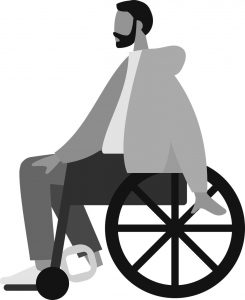Below are some examples of the research projects our lab has undertaken.
Jewish on Campus
In this study, we are examining stress, coping, and health among Jewish college and university students. The purpose of this study is to collect information on how Jewish students are coping in light of the heightened antisemitism being displayed on college and university campuses.
Please click here to learn more or to participate.
Coping with the COVID-19 Pandemic Study
![]()
![]()
The purpose of this study is to collect information on people’s thoughts, feelings, and behaviours related to Coronavirus disease or “COVID-19.” This information will help us better understand how people deal with the risk of becoming infected with the virus, and how information about the virus and disease can best be delivered to the public.
Please click here for more information about the study.
UBC Genetic Connections Study
The widespread availability and popularity of direct-to-consumer testing highlights the need to examine people’s motivations for testing, as well as the implications for both the individual who undergoes testing and members of their immediate and distant family. Given the initial evidence for both the profound delight and connection that the tests can bring, as well as the significant distress they can sometimes engender for individuals and their families, our team was motivated to embark on a project to examine the impact of receiving such test results.
Please click here for more information about the study or if you are interested in participating!

Preschool Families Study
Having young children can be demanding and stressful for working parents. The information that families provide in this study will be used to better understand the daily challenges that parents of young children face and how they manage those challenges — both together and apart.
UBC Coping with Stress Study
Stress is a feeling of threat that stems from problems and difficult experiences. Studies show that sometimes when people experience stress, depending on the situation, they go to their intimate partner to get guidance or help in dealing with the situation. People who are in relationships can use a variety of ways to help each other deal with the stress of everyday life. The purpose of this study is to create a new measure of social support in intimate relationships.
UBC Paramedic SCOPE Study (Stress & Coping across Occupational and Personal Environments)
Due to the unique nature and high demands of their work, paramedics regularly experience stress not common to the general population, such as death of a patient under their care, violence, and more generally, human suffering and tragedy. As a result, this population has been identified as high risk for post-traumatic stress and trauma-related symptoms such as depression, anxiety, and resulting health problems. This project aims to examine how paramedics cope with this unique stress both on and off the job (from a dyadic perspective, with their work partners and spouses, respectively). Daily diary methods have been used to collect information on daily indicators of stress, coping, and social support in a sample of Canadian paramedics and their spouses, where applicable.
Stepfamilies Study
Across North America, stepfamilies have become a typical family form. Stepfamilies have the potential to improve family functioning from that of a single parent home. However, this potential often goes unrealized. The divorce rate in stepfamilies is approximately 10% higher than in first-marriages and stress is often felt by all members of the family. This longitudinal study investigates the day-to-day stressors, coping mechanisms, and sources of support that affect the wellbeing of stepfamily members and the stability of stepfamily relationships. We have followed the stepfamilies in this study for more than 20 years and we have collected comprehensive data through numerous means (e.g., daily diary, interviews, and questionnaires). This rich source of data provides excellent opportunities for understanding the challenges faced by this increasingly prevalent family form and the barriers we need to overcome to foster the quality and stability of stepfamily relationship.

Living with Spinal Cord Injury Study
We are collaborating with Dr. Susan Cadell from the Department of Social Work at UBC in a study on adaptation to spinal cord injury. We have conducted face-to-face interviews and daily telephone interviews in order to examine individuals’ with SCI coping with stressful events, life goals, social support, spirituality and unanticipated benefits and how these factors relate to functional ability, pain levels and other psychological and physiological outcomes.
Coping and Social Support in Rheumatoid Arthritis Project
We have a series of studies investigating coping and social support in rheumatoid arthritis (RA). A major focus is on how spouses of people with RA impact their partners’ experiences with the disease.
